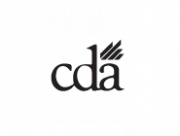Post op Instructions – Tooth Extraction
DO NOT DISTURB THE AREA: For the next few days, and especially the first 24 hours, it is very important to allow your body to start the natural healing process. Swishing, sucking through a straw, and smoking can all dislodge the clot that begins this process. Keep anything sharp from entering the wound (crunchy food, toothpicks, eating utensils). Be sure to chew on the opposite side for 24 hours.
BLEEDING: When you leave the office, you might be biting on a gauze pad to control bleeding Keep slight pressure on this gauze for at least 30 minutes. Don’t change it during this time; it needs to remain undisturbed while a clot forms in the extraction socket. After 30 minutes you may remove it. You may bite on another gauze or a black tea bag for another 30 minutes if you feel it is still bleeding. Small amounts of blood in the saliva can make your saliva appear quite red. This is normal and may be noticed the rest of the day after the procedure.
SMOKING: Smoking should be stopped for 48 hours following surgery. Healing and success of the surgery will be substantially reduced by the cigarette smoke chemicals in your body. Also the suction created when inhaling cigarettes can dislodge the clot. Smokers are at greater risk of developing a painful Dry Socket.
PAIN: Some discomfort is normal after surgery. Take the following pain killers as instructed, before the initial anesthesia wears off.
Mild-Moderate Pain: Take two Tylenol or Ibuprofen 200mg X2 (avoid Aspirin) every 3 to 4 hours.
Moderate-Severe Pain: Take 2 Tylenol (1000mg) with 2 Ibuprofen (400mg) every 6 hours.
Severe Pain: We will prescribe Vicodin as necessary for significant discomfort. Instructions will be given as needed.
NAUSEA: This is most often caused by taking pain medications on an empty stomach. Reduce nausea by preceding each pain pill with soft food, and taking the pill with a large glass of water or milk.
SWELLING: Applying an ice bag to the face over the operated area will minimize swelling. Apply for 15 minutes, then remove for 15 minutes. Continue this for the first day if you are having swelling.
NUMBNESS: The local anesthetic will cause you to be numb for several hours after you leave the office. Be very careful not to bite, chew, pinch, or scratch the numb area. Rarely, the extraction causes residual numbness or tingling for six weeks or longer.
BRUSHING: Do not brush your teeth for the first 8 hours after surgery. After this, you may brush your teeth gently, but avoid the area of surgery for 3 days.
RINSING: Avoid all rigorous rinsing or swishing for 24 hours after extraction. Rinsing can disturb the formation of a healing blood clot which is essential to proper healing. This could cause bleeding and risk of dry socket. After 24 hours you may begin gentle rinsing with a saltwater solution (1/2 teaspoon salt + 8 ounces warm water). Generally, after 5 days you can return to your regular rinse.
DIET: Eat soft foods for the first two days. Maintain a good, balanced diet. Return to normal regular meals after the first two days. Drink plenty of water. Avoid alcohol for 48 hours.
ACTIVITY: After leaving the office, rest and avoid strenuous activities for the remainder of the day. Keeping blood pressure lower will reduce bleeding and aid healing.
ANTIBIOTICS: If you were given an antibiotic prescription, take all of them as directed until they are gone. Women, please note: some antibiotics can reduce the effectiveness of birth control pills.
Please call your dentist if you have:
- Pain that is not controlled by above medication regimen or marked fever
- excessive or severe bleeding
- excessive warm swelling occurring a few days after the procedure
- reactions to medications, especially rash, itching, or breathing problems
Following these instructions very closely will greatly help your comfort, and promote uneventful healing of the area. If any of the instructions are not followed, you might have significantly more discomfort, and the success of the procedure may be affected.
certification
Trusted By





